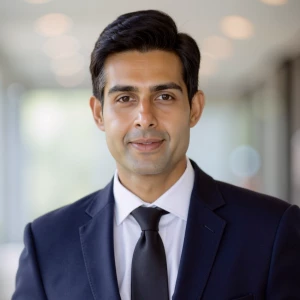Hi PL Community.
Since these firms have their own interviewing styles (e.g. interviewer-led vs candidate-led), do we have to prepare differently in terms of structuring frameworks for each firm? Thanks!
McKinsey VS BCG/Bain's Framework Styles


Hey there,
-----
UPDATE
I have written a detailed insider perspective on the McKinsey case interview here: https://www.preplounge.com/en/mckinsey-interview
-----
I can answer from a McKinsey perspective and am sure other coaches can do the same for BCG/Bain here.
I think the misunderstanding might be in the difference between a framework derived for McKinsey vs. a framework created for other consulting interviews.
At the core, McKinsey wants to see creative ideas communicated in a structured manner, the more exhaustive the better.
Your goal should be to come up with a tailored and creative answer that fits the question. The framework should - broadly speaking - follow these three characteristics:
- Broad
- Deep
- Insightful
You would need to go into detail and qualify your answer with practical examples and more details.
To come up with the framework you have 1-2 minutes (2 minutes is kind of a soft limit). Then, in a McKinsey interview, you can take up to 6-8 minutes to present your structure, your qualification, and hypotheses. This is due to the interviewer-led format that McK employs. The interviewer will only ask 'what else' if you
- haven't gone broad or deep enough
- did not explain your ideas well enough for them to stand out (again, you have time here)
The firm wants to see exhaustive and creative approaches to specific problems, which more often than not do not fit into the classic case interview frameworks that were en vogue 10 years ago...
Again, this only applies if everything you say
- adds value to the problem analysis
- is MECE
- is well qualified
- includes a detailed discussion of your hypotheses at the end
Summing up the core differences:
- You have more time to think about it
- You have more time to lead the interviewer through your structure
- You need to go wide and deep to create an exhaustive and creative structure, whereas in BCG/Bain you rather need to be focused and quickly zero in on the key points where the problem of the case is most likely buried
- Questions tend to be more creative and not suitable for classic frameworks, especially on the lower levels of the framework
- Instead of drilling through your framework, in the end, to look for answers to solve the case, in a McKinsey-style, you need to discuss what part of your framework you would want to prioritize
The difference in format and way of answering a question is the reason why I recommend preparing very differently for McK interviews vs. other consultancies.
I have also highlighted some other differences in this article: https://strategycase.com/mckinsey-case-interview
Let me know if you have more questions!
Cheers,
Florian



Florian is exactly right.
What McKinsey focuses on is breadth and depth of answer. Many candidates do not go into sufficeint depth when presenting their initial structure making it seem superficial. Make sure you go 3 layers deep. Also you need to very clearly articulate what you are looking at and why for the structure to feel complete.
Udayan

Hi,
Would largely disagree with Florian here.
- At McKinsey, you will have both Interviewer and candidate-led cases. Usually, the first round is mostly candidate-led. However, in the second round, the partners would prefer you to lead the case. Please, don't fall into this trap of preparing only "McKinsey style cases"
- The key structuring rules are the same across all the companies. Please note that not all structures can and should be MECE. In fact only mathematical structures can be 100% MECE.
- Usually, once you build the structure, the interviewer will ask you to drill deeper into the particular branch of your analysis, and you will build another sub-structure
- Your structuring is assessed throughout the whole case. If you don't use structures in digging deeper into the particular brunch or answering creativity questions, the feedback will be that you are not structured enough
- Once you are done with presenting the structure ask the interviewer: "Is this structure good to move forward with? Should we add or prioritize anything?". If it is the interviewer-led case, the interviewer will tell you the next steps.
Best

Hi there,
This is a good and often debated question ;)
Short answer – you don’t need a different preparation for the initial structure if you prepare in the right way.
At McKinsey, the expectation is for a deep structure initially – but this works well for BCG and Bain as well.
I teach the same way to approach frameworks and structures for all MBB. The structures I teach are:
- Deep (several layers)
- Personalized to the case
- MECE
These structures work well for all MBB (you can check my reviews for references).
It is true that McKinsey has an interviewer-led approach, however this doesn’t change the basic logic to present the initial structure.
The following are the main differences you can expect in a McKinsey interview compared to a BCG/Bain one:
- The interviewer will usually lead the case (although not always – in particular in final rounds – so you should be prepared for both types)
- The fit format is very standard: you will almost always have a PEI story to present
- The case format is very standard: initial structuring question, creativity question, math+graph analysis
- Often conclusion is not present
There is also another difference, which however depends on the office – McKinsey tends to favour more public sector cases compared to BCG and Bain. Again, this is general, because BCG in the Middle East for example is also heavy on this. This is why sometimes you may read cases are more creative at McKinsey.
The trickiest thing about the McKinsey interview vs other consulting companies is not the fact that the initial structure is different. It is that it is interviewer-led. And preparing only for that format could actually lead to some issues.
Many candidates prepare for interviewer-led cases (McKinsey style), then struggle to prepare for interviewee-led cases (BCG and Bain) as they are unable to lead the case.
Consequently, they get the feedback and sometimes get rejected by BCG and Bain exactly for that reason. As occasionally McKinsey interviews are also candidate-led, this may be a risk at McKinsey as well.
That's why preparing for interviewer-led cases only is a risky strategy. Conversely, if you are prepared for candidate-led cases, you will be fine also in interviewer-led ones.
In any case, back to your question: if you are well prepared with an initial structure with the characteristics mentioned above (deep, MECE, personalized to the case) you will be fine with all MBB.
If you have additional questions please feel free to PM me.
Hope this helps,
Francesco

Hello!
To add a different note, once you are ready for one you are ready for all.
Furthemore, you can find interviewer and interviewee lead cases in all of them, it truly depends on who you have in front.
This said, focus on the key that is across: you will be presented with a business problem that you need to help solve, legeraging 100% f your toolkit.
Hope it helps!
Cheers,
Clara

Hi there,
The only thing I have to add to the already excellent answers here is the following:
- I agree that, in general, all of the same things are being tested regardless as to who you're interviewing with. (Fundamentally, are you breaking down and communicating the problem into a logical structure that will help you achieve the objective, and doing so in a way that is clearly tailored/tied to the client and their situation)
- McKinsey does indeed tend to require a more exhaustive framework (i.e. additional levels/layers) than some of the other companies (i.e. BCG)














